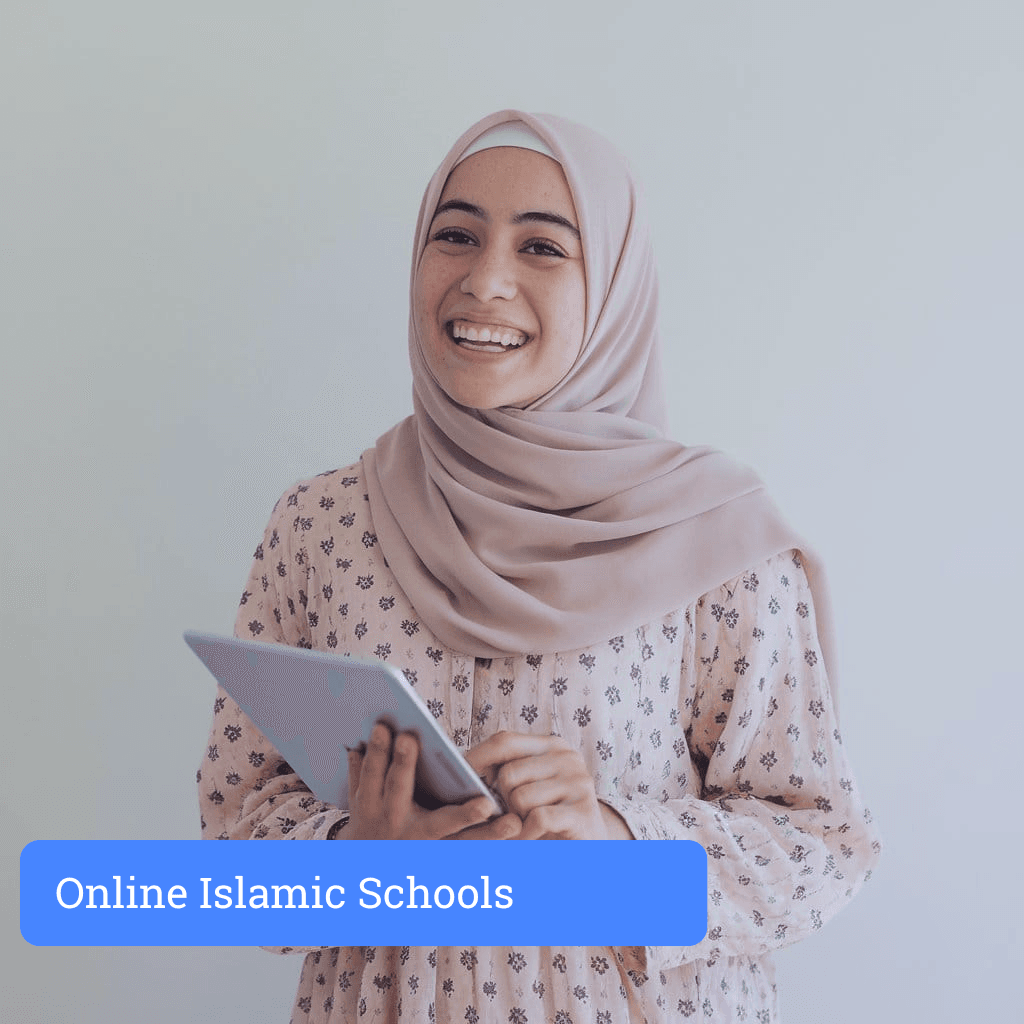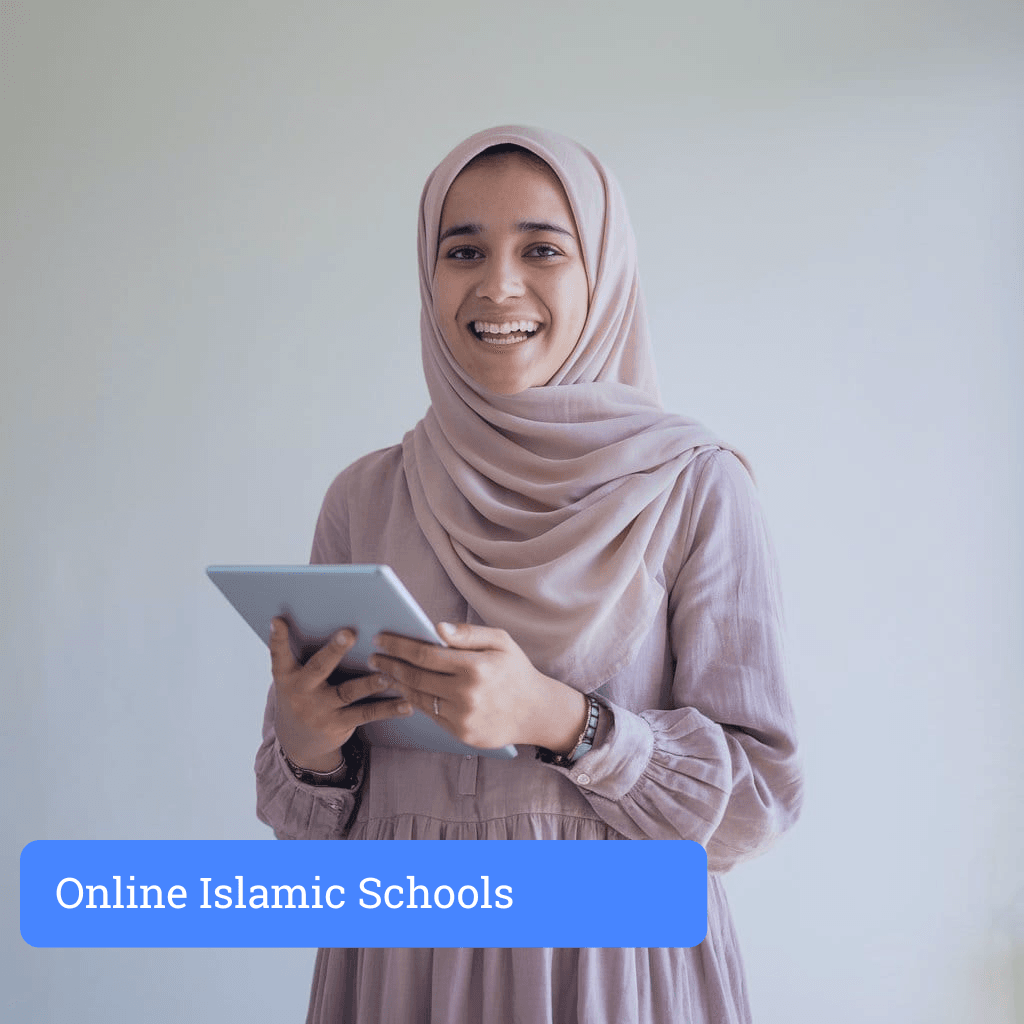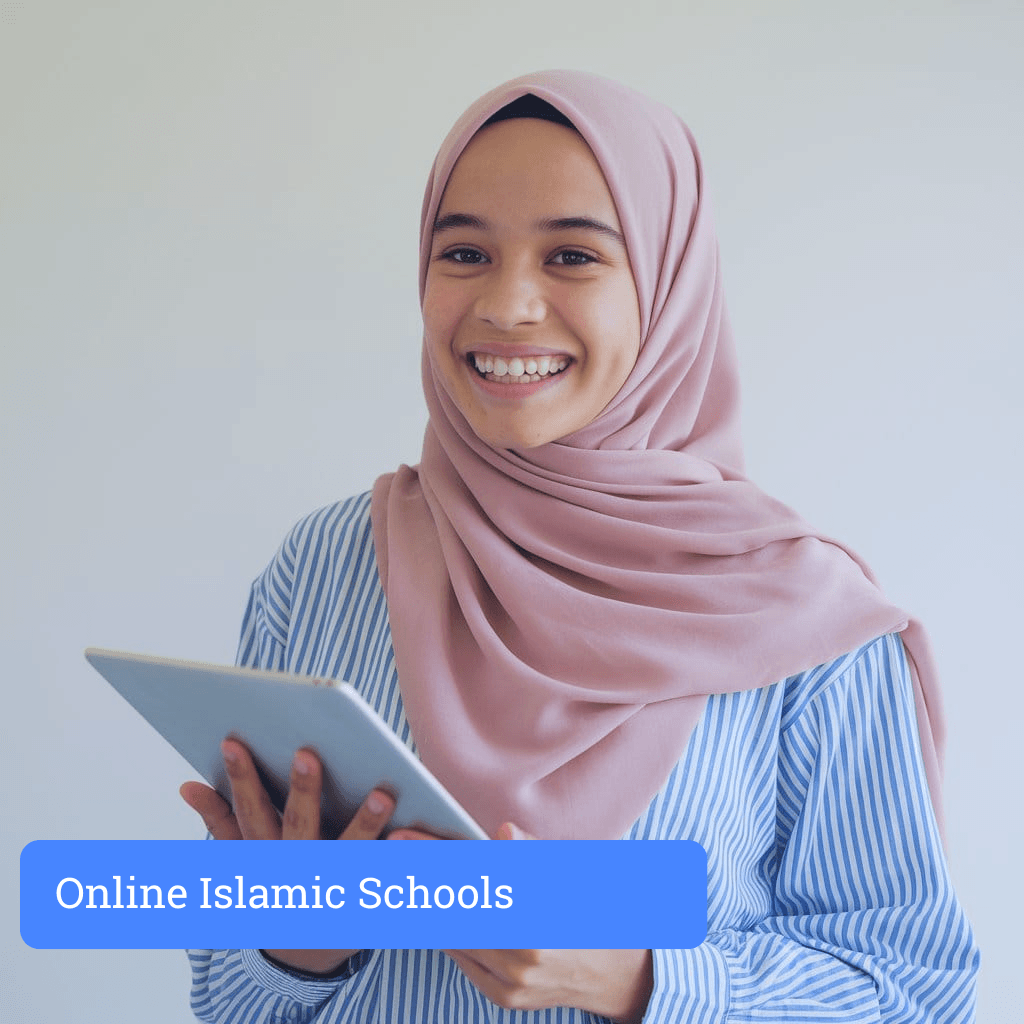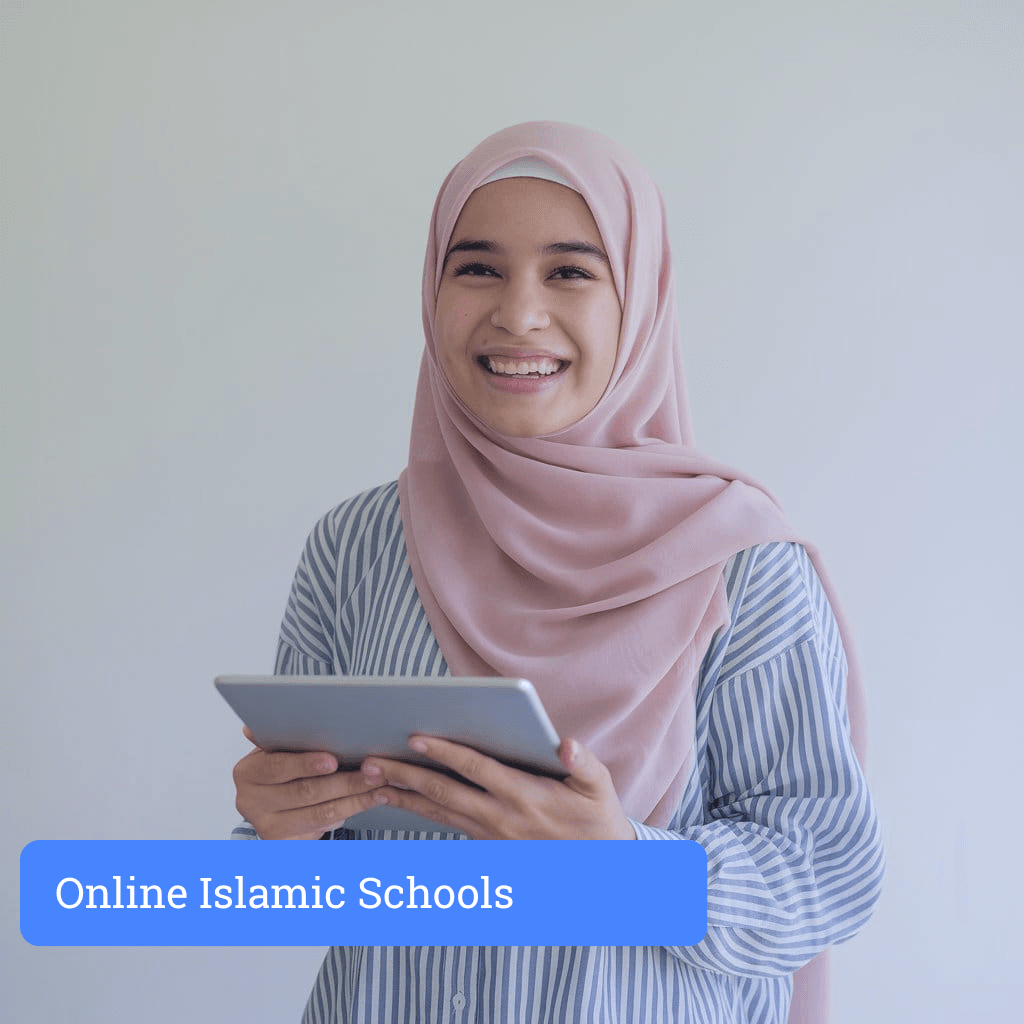Menu
In recent years, the demand for online Islamic academies have risen dramatically. The digital age has transformed the way people acquire Islamic knowledge, with thousands of Muslims worldwide now turning to virtual platforms to learn about their religion. Whether it’s learning the Quran, understanding fiqh, or studying the hadith and sunnah, online education offers an accessible and flexible way to gain Islamic knowledge at one’s own pace.
This shift towards Islamic education in the form of the online sphere has opened up opportunities for students of all ages—children, adults, and even complete beginners—to deepen their understanding of Islam and its teachings. Let’s explore how online Islamic courses are providing a holistic and engaging learning experience, while accommodating the diverse needs of their students.






For every Muslim, seeking knowledge is an integral part of faith. The Quran and hadith encourage Muslims to strive for learning in every aspect of life, especially in understanding their religion. The pursuit of Islamic knowledge not only enriches one’s faith but also helps in applying Islamic teachings in daily life. By understanding the principles of fiqh and the sunnah, Muslims are better equipped to make decisions that align with the guidance of Allah.
In the past, this knowledge was often obtained through local madrasas, mosques, and community classes. However, as the world has become more digitally connected, online Islamic school have become a popular and convenient option for those seeking to study Islam. These virtual institutions provide a wide range of courses on various Islamic topics, allowing students to study at their own pace while balancing their other commitments, such as work or family life.
One of the key advantages of online Islamic school is the flexibility they offer. Students can enroll in courses tailored to their current level of understanding, whether they are beginners, at an intermediate level, or seeking advanced level studies. This flexibility is particularly beneficial for working adults and busy parents who want to further their knowledge without disrupting their routines.
With self-paced learning, students can engage with the material at their convenience, making it easier to absorb complex concepts like fiqh, the teachings of the Prophets, and the philosophical underpinnings of Islamic law. Moreover, many online Islamic courses offer short courses in chapters or modular learning paths, which allow learners to focus on specific areas of interest, such as Quranic interpretation or the history of Islam.


Online Islamic school cater to a diverse audience, offering specific courses for both children and adults. Children’s courses are designed to be engaging and easy to understand, focusing on the basics of Islamic teachings, Quran recitation, and prayer. These courses often include fun, interactive activities that make learning enjoyable for younger students.
On the other hand, adult learners can take more advanced courses in topics like fiqh, Islamic history, and hadith. These courses are typically more detailed, requiring a deeper level of engagement and study. Adult students often appreciate the opportunity to explore more sophisticated areas of Islamic scholarship, applying what they learn in the course to their daily lives and even sharing that knowledge with their families and communities.
Online Islamic academy provide a broad curriculum that covers a range of subjects essential to understanding and practicing Islam. Here are some key areas often included in the curriculum:
Learning the Quran is the foundation of Islamic education. Most online schools offer Quran recitation classes that focus on correct pronunciation and Tajweed rules. These classes often include interactive elements where students can practice reciting the Quran with guidance from an experienced teacher. Some courses may even delve into the deeper meaning of the verses to foster a more comprehensive understanding of the Quran.
Since Arabic is the language of the Quran, many Islamic schools offer classes that range from basic to advanced, helping students learn how to read, write, and speak Arabic. Gaining proficiency in Arabic also aids in understanding Islamic texts, the hadith, and classical works of Islamic philosophy.
Fiqh courses cover the laws and practices that govern a Muslim’s life, from prayer to family law, finance, and ethical behavior. Students learn the legal rulings derived from the Quran and Sunnah, as well as how they apply to modern contexts. Understanding fiqh helps Muslims navigate their daily lives in accordance with Islamic principles.
Hadith and Sunnah: The teachings and actions of the Prophet Muhammad (pbuh) are vital to understanding the essence of Islam. Courses on hadith and sunnah explore these teachings and how they complement the Quran. Learning the sunnah encourages students to adopt the Prophet’s practices in their own lives, leading them to a more fulfilling and spiritually guided existence.
Many online Islamic madrassas offer courses on the history of Islam and its development as a civilization. These courses provide insights into the rise of Islamic empires, key historical figures, and how Islam spread across the world. Understanding the historical context helps students appreciate the rich legacy of Islamic scholarship and culture.
Islamic Science: For students interested in going beyond the basics, advanced courses in Islamic science cover areas such as theology, Islamic philosophy, and comparative religion. These courses often require critical thinking and analysis, helping students engage deeply with the concepts of faith and knowledge.
One of the major advantages of online Islamic academy is the use of modern technology to make learning more interactive and engaging. Many online platforms incorporate features like live virtual classes, discussion forums, quizzes and tests, and recorded presentations. These tools allow students to interact with their instructors in real-time, ask questions, and engage in meaningful discussions about Islamic topics.
Interactive sessions also foster a sense of community among students, as they can share their experiences and insights. For instance, a student learning about the fiqh of daily prayers may benefit from hearing how others incorporate these practices into their routines. Online Islamic courses often create a network of learners who support each teach each other and help one another progress in their understanding of Islam.
Instructors play a crucial role in this process, offering personalized feedback and guidance to the class to ensure that each student grasps the material. Whether it’s correcting the recitation of the Quran or explaining complex fiqh rulings, these teachers provide the support necessary for students to succeed.
Our online Quran academy offers a truly interactive Quran learning experience, designed to engage students and ensure they grasp the teachings of the Holy Quran effectively. With the help of modern tools like screen sharing and whiteboard explanations, our instructors break down complex topics into easily understandable lessons. This hands-on approach fosters active participation, allowing you to ask questions, clarify doubts, and engage in meaningful discussions in real-time.
Learn at Your Own Pace with Personalized Lessons
Everyone learns differently, which is why we emphasize personalized learning. Whether you’re a complete beginner or seeking to enhance your existing Quranic knowledge, our one-on-one sessions are tailored to your individual needs. This flexible learning approach ensures you can study the Quran at your own pace, taking as much time as you need to master each concept. Our instructors offer continuous feedback and adapt lessons to suit your learning style.
Expert Guidance in Arabic and Islamic Studies
In addition to Quranic studies, our platform provides expert instruction in Classical Arabic and Islamic studies. This is ideal for those who wish to deepen their understanding of not just the Quran, but also its linguistic beauty and cultural significance. With a focus on Tajweed, Quranic interpretation, and Islamic history, our courses offer a well-rounded educational experience that enriches both your mind and soul.
As technology continues to evolve, the concept of online Islamic school are becoming an increasingly vital part of the future of Islamic education. These schools provide a flexible and accessible platform for Muslims around the world to gain Islamic knowledge, no matter their location or schedule. From Quranic recitation to advanced fiqh, these online platforms allow students to engage with their faith in a meaningful way, applying the teachings of Islam to their daily lives.
By enrolling in an online Islamic school, students not only learn about Islamic principles but also develop skills that enhance their spiritual, intellectual, and personal growth. Whether you’re seeking to understand the true meaning of the Quran or exploring the rich history of Islam, online Islamic education provides the tools and resources necessary to lead a life guided by faith and knowledge.
An online learning platform designed to cater for Muslims who seek the ability to read The Holy Book all from the comfort of their own home.
In today’s digital age, accessing quality Islamic education has never been more convenient.
In recent years, the demand for online Islamic academies have risen dramatically. The digital age has transformed
An online learning platform designed to cater for Muslims who seek the ability to read
The learning of Tajweed, the essential art of reciting the Quran correctly, has long been a vital part of Islamic education.
Quran learning online has transformed the way Muslims around the world engage with their faith
Discover the convenience and effectiveness of learning the Quran from the comfort of your home with our learn Quran online.
Arabic is a global language spoken by millions of people worldwide, with a rich history and cultural heritage.
In this digital era, learning the Quran has never been easier. Online Quran classes are now available for kids and adults.
Every Muslim parent desires their kids to remembers Quran to get the reward from Allah in the world and hereafter.

53 Coningsby Road High Wycombe HP13 5NY

Sadiqabad, Rawalpindi, Punjab, Pakistan